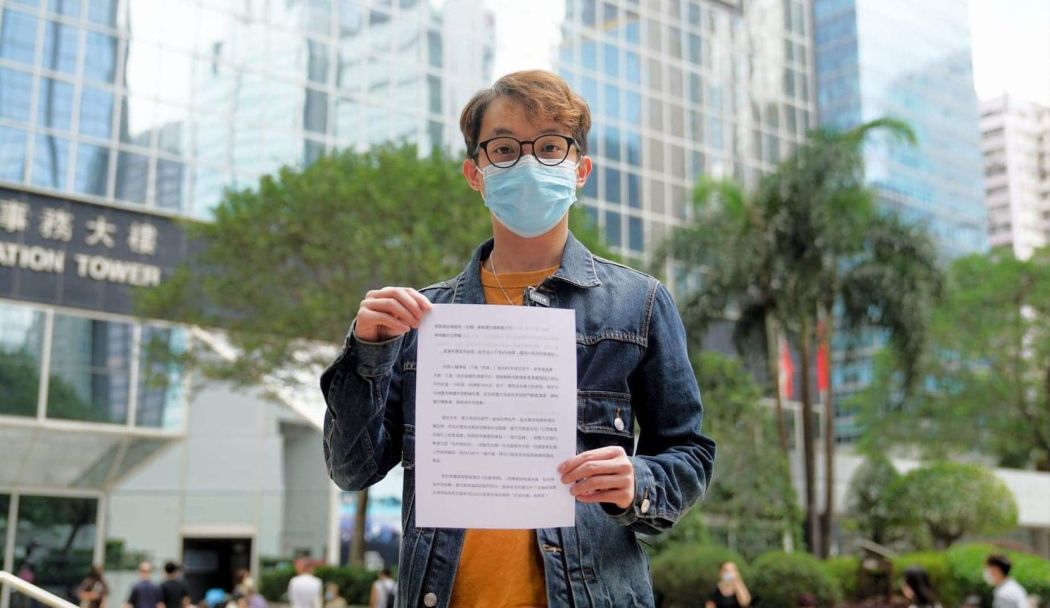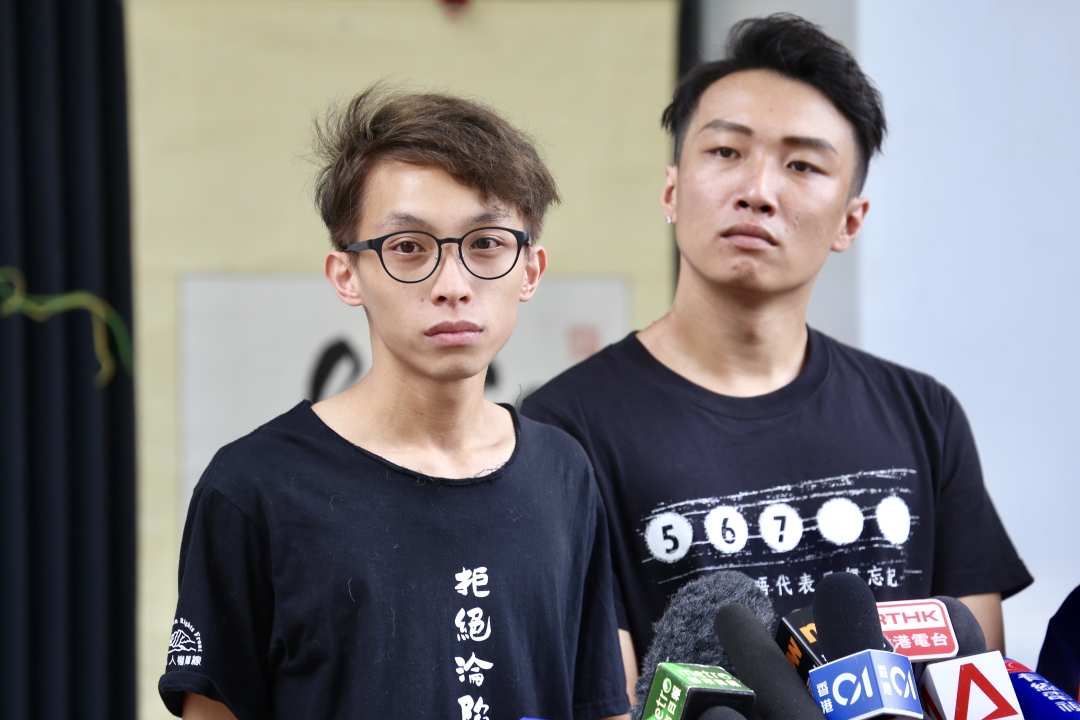Hong Kong’s largest pro-democracy protest coalition has refused to comply with a police request demanding it explain why it is not registered under the city’s Societies’ Ordinance, hand over details of its past activities and provide the force information of how it is funded.

The Convenor of the Civil Human Rights Front (CHRF), Figo Chan, issued the rebuttal in a letter delivered to the force on Tuesday.
“In the past several years, government departments including the police have worked with CHRF, they have never requested CHRF to register as a society, and have never warned or questioned that the CHRF was an illegal group,” the letter read.
“During a hearing before the Appeal Board on Public Meetings and Processions, police representatives even complimented CHRF as ‘a big brand’ which ‘cooperated very well’ with police over marches and assemblies,” it went on.
The CHRF has organised Hong Kong’s annual July 1 marches since 2003, as well as numerous police-approved mass demonstrations during the unrest of 2019. It is now facing a probe by the city’s police force into allegations that the group has breached the Societies Ordinance, following a series of critical reports by Beijing-owned media Ta Kung Pao and Wen Wei Po.
A societies officer from the police force asked the CHRF to respond to six questions regarding its operations in a letter last month: it was asked to explain why it deregistered as a society, which suggested that it might have breached the ordinance by continuing to operate without registration, the letter alleged. The societies officer also asked the group to list out all the public demonstration and rallies it had held since September 2006 and provide details of its accounts.
The group responded by citing the times they worked together with the police to organise marches and when it received praise from the city’s leader.

“Following the July 1 march in 2013, then chief executive Leung Chun-ying even called the CHRF a friend. Regarding the authorities’ question that [we] are suspected to have violated the Societies Ordinance, the CHRF feels quite astounded, that if it was an illegal society, then why would the police and various government departments cooperate with it all along?” the letter continued.
Last man in the front
“According to Article 27 of the the Basic Law, ‘Hong Kong residents shall have… freedom of association’… Therefore, please forgive the CHRF for it will not respond to the societies officer’s questions one by one.”
In response to questions from reporters on Tuesday, Chan said: “What organisation would keep information for 15 years ? I was still in primary school 15 years ago,” he said. “Even for tax purposes, records are kept only for seven to eight years, let alone [the fact] that I’m the only person in CHRF now, how would I have these records?” he said.
Two of the CHRF’s other representatives, Jimmy Sham and Eric Or are in detention for allegedly violating the national security law in connection with the democrats primary election in 2020. Chan is now its only spokesperson.
Correction 11.5.2021: A previous version of this story stated wrongly quoted CHRF’s letter saying that the chief executive’s comments were from 2014. It should be 2013.
Support HKFP | Policies & Ethics | Error/typo? | Contact Us | Newsletter | Transparency & Annual Report | Apps
Help safeguard press freedom & keep HKFP free for all readers by supporting our team

LATEST FROM HKFP
HKFP has an impartial stance, transparent funding, and balanced coverage guided by an Ethics Code and Corrections Policy.
Support press freedom & help us surpass 1,000 monthly Patrons: 100% independent, governed by an ethics code & not-for-profit.










